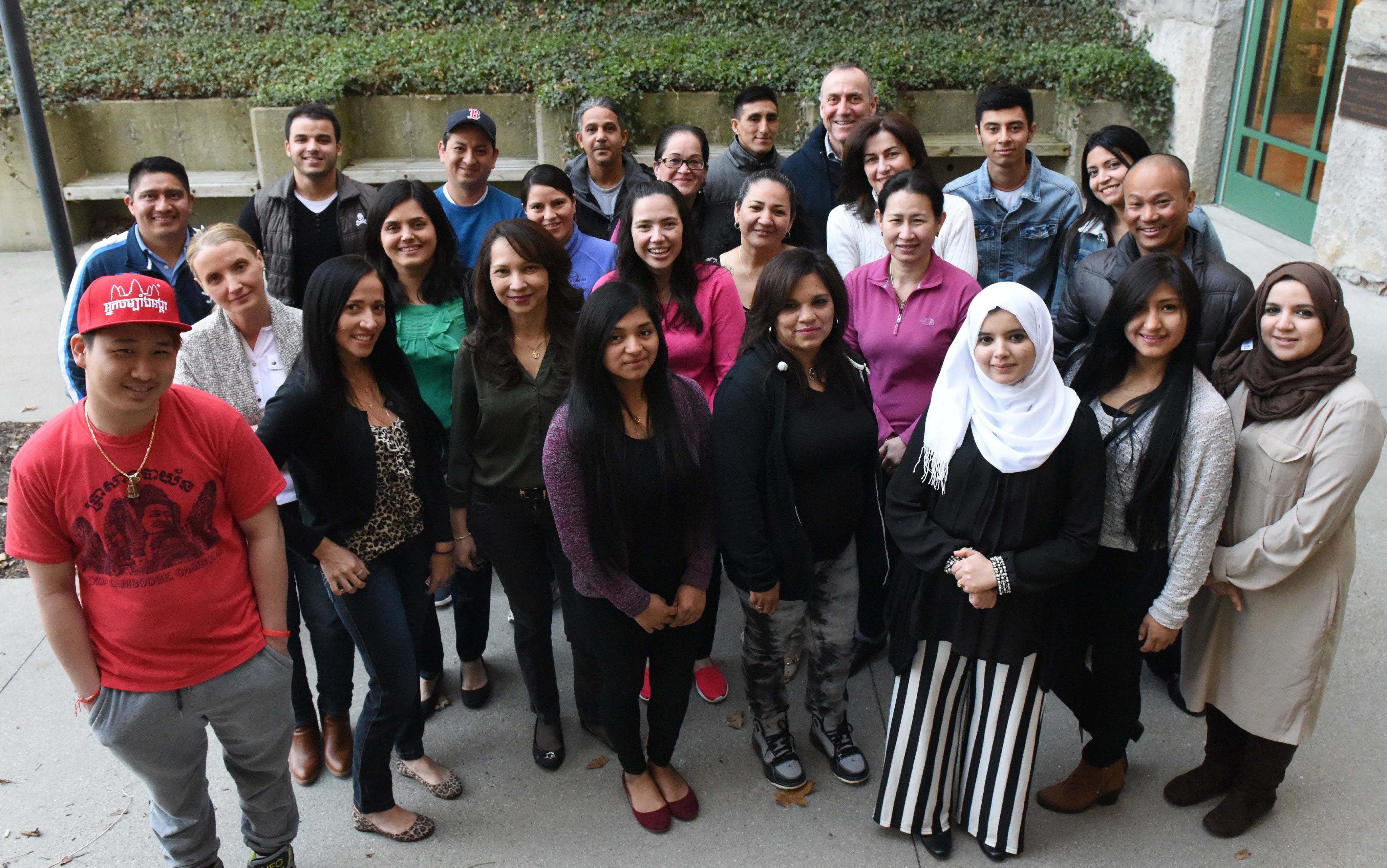September 18, 2020 Community Stories
“Emergency Teaching”
When the coronavirus bore down on western Massachusetts and shuttered classrooms, the International Language Institute (ILI) of Massachusetts shifted to “emergency teaching,” said its executive director, Caroline Gear.
On most days, said Gear, the halls of the 36-year old Northampton-based language school “look like a mini-United Nations.” Sitting next to each other learning English might be a refugee with a third-grade education and an international student with a Ph.D. Aged 17 to 80, some are fitting their studies between work at two (or three) jobs. Other students—enrolled in Spanish, French, or German classes—have set their sights on studying abroad.

The common bond? A thirst to improve their language skills, work gainfully, and contribute fully to their communities.
But, when COVID-19 hit, ILI faced massive challenges. Many students—stuck at home—lacked computers, smartphones, or internet access for video learning. Many had never used Zoom or Google Hangouts. ILI’s teachers were accustomed to teaching in-person, not from their homes.
Gear and her teachers mobilized to offer classes online and to give students resources to access them. In hand was a capacity grant from the Community Foundation, earmarked to build a web-based language management system. From student enrollment to volunteer coordination and financial management, the system will give ILI the software and power to operate online daily.
“Little did I know when I wrote that grant in October that this would be exactly what we needed when COVID-19 hit,” said Gear.
Since online learning is here to stay, ILI will soon be using the new system to deliver language classes more efficiently (and virtually!) to eager learners—with the help of video technologies and dedicated teachers.